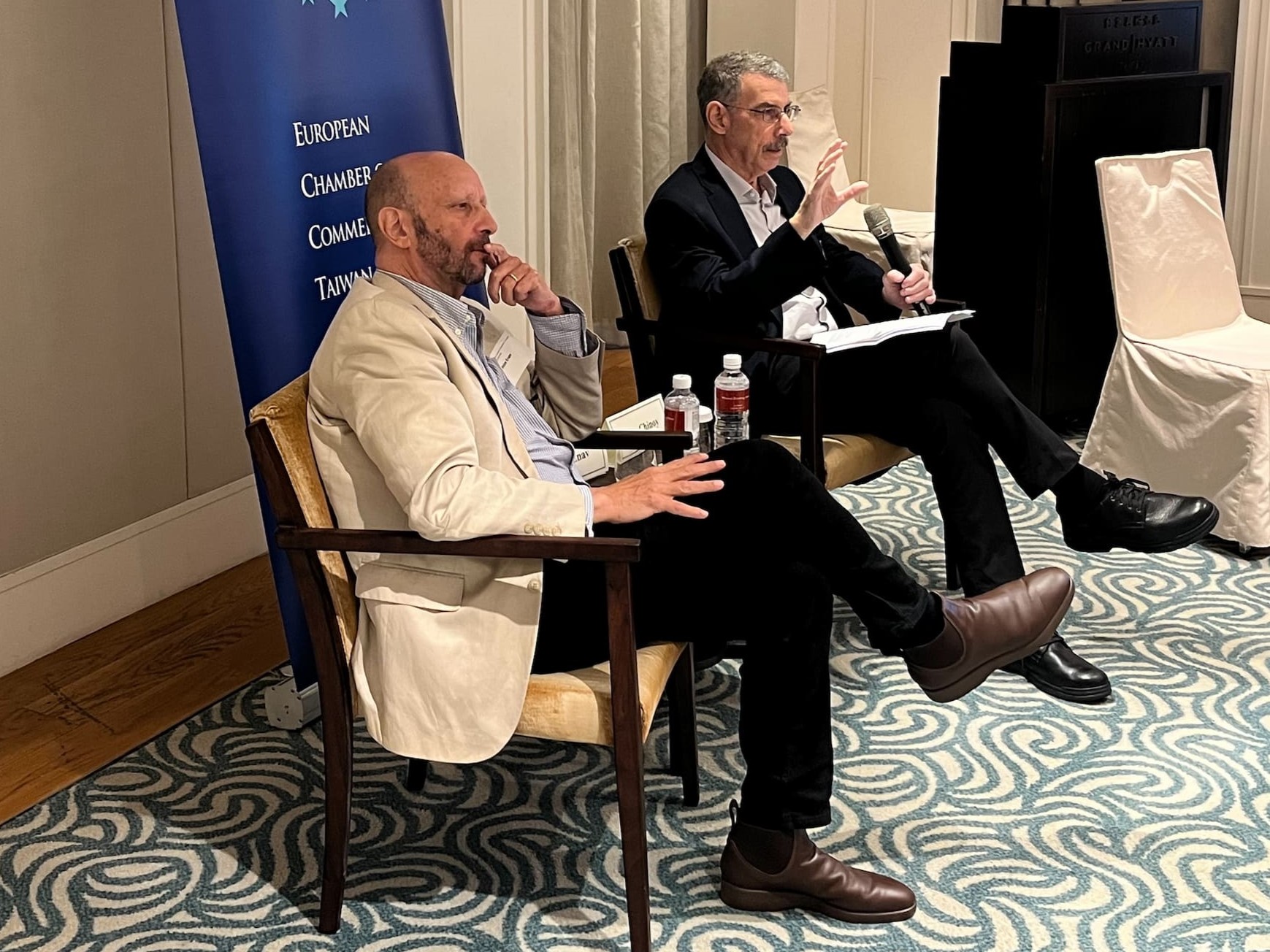Factors affecting Taiwan, US and China relations

The ECCT hosted a Special Lunch on the topic "Taiwan, China, and the US: The risks ahead". The event took the form of briefings and a panel discussion featuring Peter Enav, Founder and Editor of the Taiwan Strait Risk Report (and former AP correspondent) and Mike Chinoy, Non-Resident Senior Fellow of the US-China Institute at the University of Southern California (who was formerly a CNN correspondent). Drawing on insights from their recently launched Taiwan Strait Risk Report, the speakers presented their views on factors affecting the risk of conflict in the Taiwan Strait.
Taiwan's new president will be inaugurated on 20 May and Americans will go to the polls in November. Despite an increase in grey zone tactics in the Taiwan Strait in recent years and rising concerns in the west, there is no apparent sense of an impending crisis in Taiwan. This has led to some concerns that Taiwanese are too complacent about the threats, especially since the response of Ukrainians to Russia's invasion has raised the bar of expectations for other countries facing external threats. Taiwan also does not compare favourably to Israel, where there is an overwhelming commitment to national survival. While Taiwan has taken some actions in recent years to bolster its defences, including increasing defence spending and the length of compulsory military service from four months to one year, critics in the west view this as insufficient. For example, Israelis do much longer periods of military service and 60-90 days of annual service in reserve forces thereafter. Taiwan's military establishment has been described as conservative and too enamoured with flashy and expensive military hardware that may not survive a large-scale enemy attack. This has led Taiwan's military to begin paying more attention to asymmetric warfare and related hardware but the limited budget leaves many gaps in Taiwan's overall defence.
While China continues its military buildup, it is more concerned with domestic issues, such as its ongoing property slump and shrinking population. It does not appear to seek a conflict with the US but the chances of an accident occurring (such as a collision between US and Chinese aircraft or warships) are rising given increased military activity by both sides, not only in the Taiwan Strait but also in the South China Sea and beyond, involving the US or its allies. Analysts are concerned that the lack of communication between Beijing and Washington could lead to misunderstanding that could result in the escalation of an accident into a crisis.
Should Joe Biden win re-election in November, we should expect a continuation of his current efforts to bolster alliances with regional allies and increase deterrence. If Donald Trump wins, it is not certain how he will deal with Taiwan or China. On the one hand he has previously taken aggressive stances against China but on the other hand, has expressed admiration for Xi Jinping and boasted about his ability to make deals with adversaries. Making a deal with China could well be at the expense of Taiwan. That said, the US congress maintains bipartisan support for Taiwan and many of Trump's associates and allies strongly support Taiwan and this could influence his decisions.

